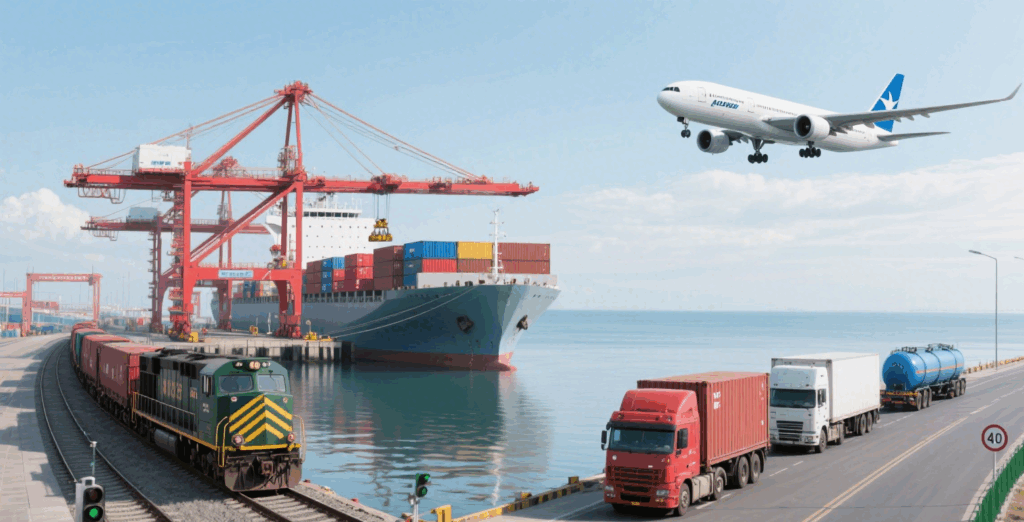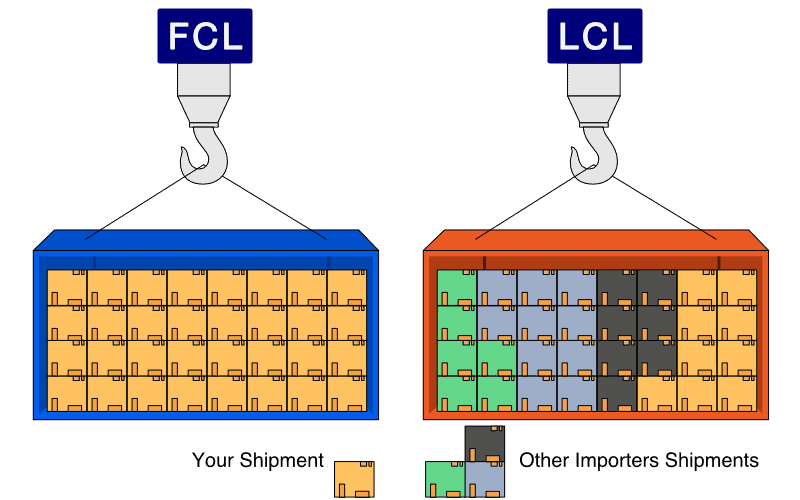If you are an importer or exporter, one of your first questions is: what is the price of shipping containers? Whether you move goods by sea, air, or rail, shipping costs directly impact your profit margins and competitiveness. Unfortunately, prices fluctuate due to demand, port congestion, and global fuel trends.
This guide breaks down container prices, explains differences between transport methods, highlights hidden costs, and provides actionable tips for businesses to optimize freight spending.
1. What Is the Current Price of Shipping Containers in 2025?
The price of shipping containers depends on container type, route, and mode of transport.
| Container Size | China → US West Coast | China → Europe | Domestic Rail |
|---|---|---|---|
| 20ft Standard | $1,800 – $3,500 | $2,500 – $4,200 | $1,000 – $1,500 |
| 40ft Standard | $2,500 – $4,800 | $3,500 – $6,000 | $1,200 – $2,000 |
| 40ft High Cube | $2,800 – $5,200 | $3,800 – $6,500 | $1,400 – $2,200 |
📌Key Takeaway: On average, businesses pay $2,000–$6,000 per container for sea freight. Prices for rail and air differ significantly.
2. Why Do Shipping Container Prices Fluctuate So Much?
Business owners often get frustrated when asking for a quote one week and seeing it rise the next. The main factors are:
- Global demand spikes (holidays, e-commerce booms).
- Fuel price volatility directly impacting freight surcharges.
- Congested ports that trigger premium service fees.
- Political or environmental risks increasing insurance costs.
3. Is Sea Freight the Cheapest Way to Ship Containers?
Yes—sea freight is the lowest-cost option but also the slowest.
- Transit time: 18–30 days from China to the US West Coast.
- 40ft container cost: $2,500–$4,800.
- Best for: High-volume, non-urgent goods (furniture, textiles, raw materials).
4. What Is the Price of Air Shipping Containers?
Air freight container equivalents (ULDs) cost much more but save weeks of waiting.
- Transit time: 3–6 days from China to the US.
- Cost equivalent of 40ft cargo: $15,000–$25,000.
- Best for: Time-sensitive cargo like electronics, pharmaceuticals, and luxury goods.
5. How Much Does Rail Freight Cost Compared to Sea and Air?
Rail freight is growing between Asia and Europe as a middle-ground solution.
- Transit time: 15–20 days.
- Cost for 40ft container: $6,000–$8,000.
- Best for: Electronics, apparel, urgent-but-not-overnight shipments.

6. What Hidden Fees Make Container Shipping More Expensive?
The freight rate alone doesn’t cover your full cost. Businesses should prepare for:
- Terminal Handling Charges (THC)
- Customs brokerage and duties
- Cargo insurance
- Demurrage and detention penalties
- Documentation fees (bill of lading, certificates)
These can add 15–25% to your shipping bill if not managed.
7. Should I Ship FCL or LCL to Save Money?
- FCL (Full Container Load): Better for businesses filling more than 70% of a container. Lower per-unit cost, less risk.
- LCL (Less than Container Load): Good for smaller loads but slower due to consolidation.
📌Example:
- FCL 40ft China → LA: $3,200.
- LCL for 12 CBM cargo: $1,200–$1,500.

8. Which Routes Have the Highest and Lowest Container Prices?
| Route | Avg. 40ft Cost | Transit Time | Notes |
|---|---|---|---|
| China – US West Coast | $2,500–$4,800 | 18–30 days | Lowest-cost US route |
| China – US East Coast | $3,800–$6,500 | 25–35 days | Higher due to Panama Canal |
| China – Northern Europe | $3,500–$6,000 | 28–40 days | High demand, moderate delays |
| China – Middle East (Dubai) | $2,200–$3,800 | 15–22 days | Competitive rates |
9. How Can Businesses Reduce the Price of Shipping Containers?
Practical cost-saving tips include:
- Book early (2–3 weeks in advance).
- Consolidate cargo to maximize container space.
- Negotiate annual contracts with carriers.
- Use a reliable freight forwarder to avoid hidden fees.
- Ship off-peak to avoid seasonal surcharges.
10. How to Select the Right Freight Forwarder for Container Shipping
Your choice of forwarder determines final cost and speed. Look for:
- Transparent, detailed quotes with no hidden charges.
- Multi-modal shipping options (sea, air, rail).
- End-to-end visibility with online tracking.
- Customs clearance expertise to avoid costly delays.
11.Conclusion
Understanding what is the price of shipping containers helps businesses control costs, improve logistics planning, and stay competitive. By comparing sea, air, and rail freight, accounting for hidden charges, and choosing the right forwarder, companies can save thousands annually.
Provide your shipment details — including weight, dimensions, destination, and preferred transport mode — to get a customized freight quote.
FAQ:
Q1.What is the average international price of shipping containers?
On average, sea freight costs $2,000–$6,000 per container, depending on route and size.
Q2.How long does a 40ft container take from China to the USA?
- By sea: 18–30 days
- By air: 3–6 days
- By rail (to Europe): 15–20 days
Q3.Which is better for small businesses: FCL or LCL?
Lorem ipsum dolor sit amet, consectetur adipiscing elit. Ut elit tellus, luctus nec ullamcorper mattis, pulvinar dapibus leo.
Q4.Which is better for small businesses: FCL or LCL?
LCL is cheaper for small loads, while FCL offers better security and value for high-volume cargo.
Q5.Which freight method is best for urgent cargo?
Air freight is fastest, though costly. Rail freight is faster than sea but cheaper than air.
